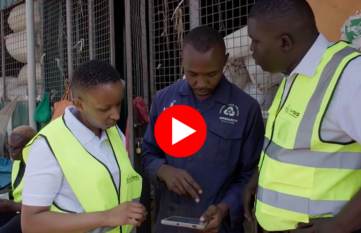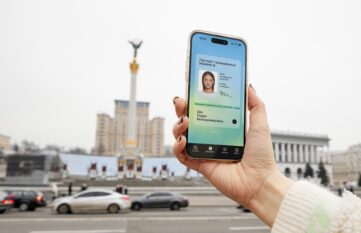Small delegations, big impact: Negotiating efficiently with the help of AI

In November, the 30th UN Climate Change Conference (COP30) will take place in Belém, Brazil. It is one of the most complex international negotiations and brings together tens of thousands of participants from over 190 countries to negotiate global climate policy. The preparations for this are labour-intensive: To support smaller delegations with limited capacities, the Data Labs of the Federal Ministry for Economic Cooperation and Development (BMZ), the Federal Foreign Office (AA) and the Federal Ministry for the Environment, Climate Action, Nature Conservation and Nuclear Safety (BMUKN), as well as the Data Lab of Deutsche Gesellschaft für Internationale Zusammenarbeit (GIZ) GmbH have developed the NegotiateCOP tool.
The platform helps to efficiently analyse and structure the large number of documents and submissions within the framework of the UNFCCC process (United Nations Framework Convention on Climate Change). This is necessary as many negotiators work their way through a large number of position papers, scientific analyses, reports and presentations months in advance. The process puts smaller delegations at a particular disadvantage: They often lack the resources that larger delegations with dozens of negotiators and extensive background support have at their disposal.

How does NegotiateCOP work?
NegotiateCOP accesses the UNFCCC submission portal and analyses thousands of country-specific submissions and documents. With the help of large language models (LLMs), the platform enables in-depth analyses and evaluations.
NegotiateCOP currently offers three main functions:
- The Submission Explorer enables content-based navigation through topics and contributions with interactive filters and metadata. It identifies important requirements and “red lines” in the countries’ positions.
- The Position Comparison Feature systematically compares the positions of different negotiating parties and highlights overlaps and differences.
- The Conversational Assistant is based on a question-and-answer module for navigating and querying topics and contributions. It offers a semantic search with AI-supported answers based on submissions in the UNFCCC portal.
What will happen with NegotiateCOP after COP30?
Following the official launch of the tool at COP30, NegociateCOP will be continuously developed based on user feedback in order to provide delegations with the best possible support in their preparations and negotiations.
- Try NegotiateCOP yourself: https://negotiatecop.org/
If you have any feedback on the application and user-friendliness of NegotiateCOP, please contact [email protected]. We will be happy to get in touch with you to further develop NegotiateCOP according to your needs.
About NegotiateCOP
The Data Labs of the Federal Ministry for Economic Cooperation and Development (BMZ), the Federal Foreign Office (AA) and the Federal Ministry for the Environment, Climate Action, Nature Conservation and Nuclear Safety (BMUKN) as well as the Deutsche Gesellschaft für Internationale Zusammenarbeit (GIZ) GmbH are leading this project based on a whole-of-government approach – a strategy for tackling challenges across governments. Together with the consulting firm PD and CEMUNE, they have successfully developed the AI-based prototype NegotiateCOP. The development of NegotiateCOP builds on the experience gained by the GIZ Data Lab during the negotiations on the UN Plastic Treaty.
Negotiators and experts from Germany and the Global South were equally involved in the agile product development process.
NegociateCOP is freely accessible and does not require registration. The application is hosted by IONOS on a server in Germany and does not store any personal information, requests or interactions on the website, thus complying with EU data protection and AI regulations.



